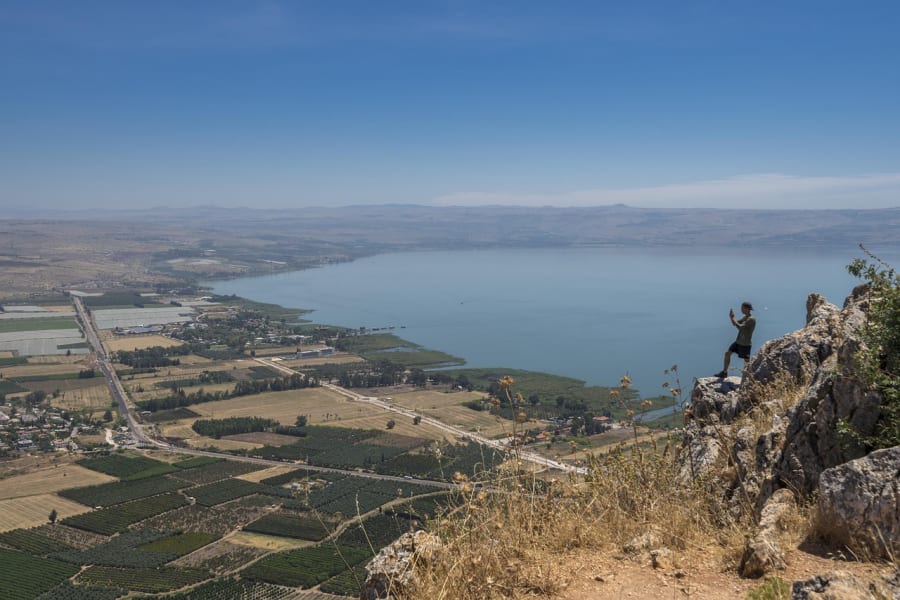Recent storms give hope for Sea of Galilee’s recovery from drought
The importance of the Sea of Galilee to Israel, its neighbors and Christians around the world cannot be underestimated for a variety of religious, economic and ecological reasons

The Sea of Galilee, sometimes called Lake Tiberias, and commonly known in Israel as "the Kinneret," looms large in the collective image of the State of Israel for both Jews and Christians.
For Israelis today, the Kinneret is not only a source of thousands of jobs in the tourism and hospitality business, it is also, more elementally, the primary source of water along with the main aquifers under the coastal plain and the Jordan Valley.
But the drought which plagued the entire Middle East for much of the last decade drastically lowered the level of the lake. By September 2018, the situation had deteriorated to the point where the shoreline around the sea had increased by dozens of meters. The government seriously considered a 5-billion-shekel ($1.5 billion) project to build a massive pipeline to send water from coastal desalinization plants into the lake in order to avoid it sinking to the so-called “black line” of 214.87 meters below sea level. That is the level at which point the Israel Water Authority warns that irreversible damage would be done to the freshwater reservoir.
However, the unusually abundant rains that have come to Israel over the winters of 2018, 2019 and so far in 2020 have brought the Sea of Galilee back from the brink and now, the Water Authority is projecting that sometime in the early spring of 2021, it will be full enough to open the dam at Kibbutz Degania and send water downstream into the Jordan River.
As of this week, the lake's surface level had risen to 210.715 meters below sea level, 1.915 meters short of being considered full, but still the fullest it has been in many years.
This is the site of much of Jesus’ earthly ministry, the body of water on which He walked (Mark 6:45-53), calmed a storm (Luke 8:22-25) and performed many other miracles in different towns around its shore. No Christian pilgrimage to the Holy Land is complete without a visit to the Sea of Galilee and the ruins of all the sites in its vicinity, mentioned in the New Testament.
The importance of the Sea of Galilee to Israel, its neighbors and Christians around the world cannot be underestimated for a variety of religious, economic and ecological reasons.
It is so integral to Israel, that an attempt by Syria in the mid-1960s to divert water upstream from the Sea of Galilee played a part in sparking the Six-Day War of 1967. On the other hand, the diversion of water from the sea to Jordan enticed Amman into signing a peace treaty with Israel in 1994.

The All Israel News Staff is a team of journalists in Israel.














